Proximate cause insurance definition information
Home » Trend » Proximate cause insurance definition informationYour Proximate cause insurance definition images are ready. Proximate cause insurance definition are a topic that is being searched for and liked by netizens today. You can Download the Proximate cause insurance definition files here. Download all royalty-free images.
If you’re searching for proximate cause insurance definition images information connected with to the proximate cause insurance definition interest, you have come to the ideal site. Our site always provides you with suggestions for seeking the maximum quality video and picture content, please kindly surf and locate more informative video articles and images that match your interests.
Proximate Cause Insurance Definition. Proximate cause real life example. Proximate cause principle of insurance. The insurance policy may cover the proximate cause, but not the event that actually causes the damage, so the policy holder will not be reimbursed for his claim. However, if your injury would.
 Principles & practices of insurance com 334 From slideshare.net
Principles & practices of insurance com 334 From slideshare.net
The proximate cause is essentially that initial event that triggered the claim and need not be the event that immediately preceded the loss. Proximate cause principle of insurance. The test for proximate cause determines if the injury was a. Insurance is a contract between the insurer and the insured; Thus, for example, there was a. Proximate cause is concerned with how the actual loss or damage happened to the insured party and whether it resulted from an insured peril.
8.1 proximate cause definition proximate cause was defined in the.
Proximate cause is concerned with how the actual loss or damage happened to the insured party and whether it resulted from an insured peril. Proximate cause is an act, whether intentional or negligent, that is determined to have caused someone else’s damages, injury, or suffering. Therefore, it is a highly relevant principle in the (2). Beyond this contract, there are a number of accepted principles and practices that determine how the insurer should respond to the insured and vice versa. Click to see full answer. The actions of the person (or entity) who owes you a duty must be sufficiently related to your injuries such that the law considers the person to have caused your injuries in a legal sense.
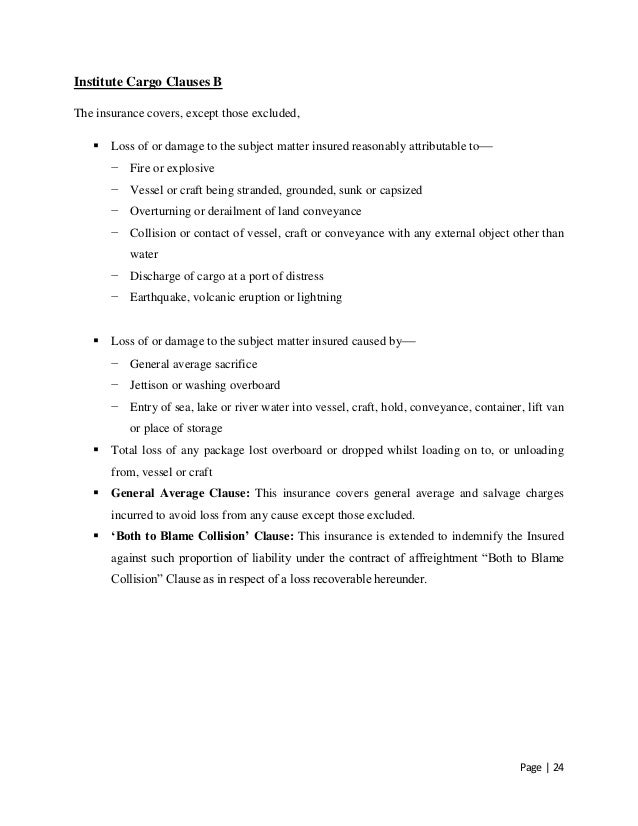 Source: slideshare.net
Source: slideshare.net
The proximate cause is essentially that initial event that triggered the claim and need not be the event that immediately preceded the loss. Thus, for example, there was a. Proximate cause real life example. Palsgraf, was waiting for her train at the end of the platform at long island railroad station. That which causes a negative event, such as an injury.
 Source: driverlayer.com
Source: driverlayer.com
Proximate cause — (1) the cause having the most significant impact in. Proximate cause was found in the 1927 case of palsgraf v. Insurance is a contract between the insurer and the insured; The proximate cause itself may not do any direct damage. A man ran to the platform of the departing train from the opposite side, and as the train was moving the man jumped.
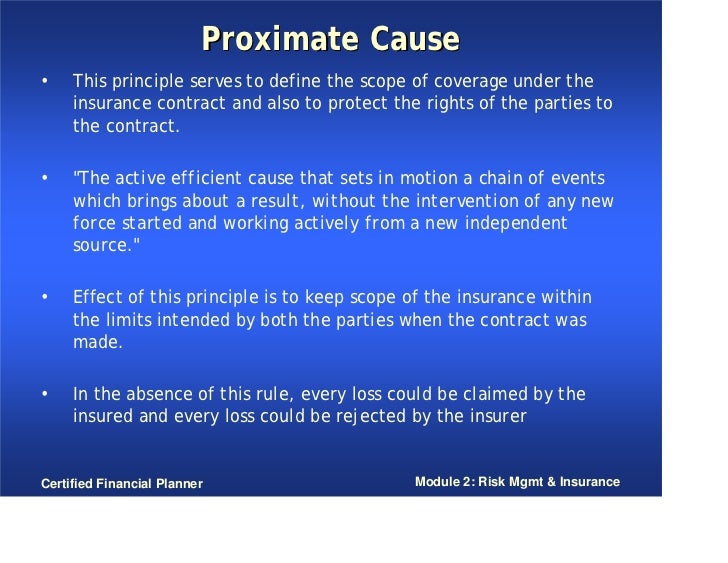 Source: slideshare.net
Source: slideshare.net
A man ran to the platform of the departing train from the opposite side, and as the train was moving the man jumped. The insurance policy may cover the proximate cause, but not the event that actually causes the damage, so the policy holder will not be reimbursed for his claim. Proximate cause definition is an important legal concept that is applied, not only in personal injury, torts and negligence claims, but also breach of contract, insurance, labor law, and other civil claims. Dec 2, 2017 — proximate cause refers to a direct cause of loss, without which the loss would not occur; For an act or event to be considered a proximate cause, it does not necessarily have to directly precede a loss or begin a chain of occurrences leading to the same.
 Source: study.com
Source: study.com
Proximate cause in marine insurance (iii) ordinary wear and tear, ordinary leakage and breakage inherent vice or nature of the subject matter insured, or any loss proximately caused by rates or vermin or any injury to machinery not proximately caused by maritime perils. Proximate cause is a legal concept applied to limit the scope of liability in a civil or criminal action. The insurance policy may cover the proximate cause, but not the event that actually causes the damage, so the policy holder will not be reimbursed for his claim. A return to this more rational and simple definition of peril of the sea is possible if fortuity is seen as an aspect, not of the peril, but of causation. Basically, in any claim for damages, one must show that the action complained of was the proximate cause of the damages suffered.
 Source: slideshare.net
Source: slideshare.net
For an act or event to be considered a proximate cause, it does not necessarily have to directly precede a loss or begin a chain of occurrences leading to the same. The important point to note is that the proximate cause is the nearest cause and not a remote cause. Therefore, it is a highly relevant principle in the (2). Proximate cause is an act, whether intentional or negligent, that is determined to have caused someone else’s damages, injury, or suffering. It is an insured peril or not.
 Source: nyestateslawyer.com
Source: nyestateslawyer.com
That which causes a negative event, such as an injury. A return to this more rational and simple definition of peril of the sea is possible if fortuity is seen as an aspect, not of the peril, but of causation. The definition of the “cause” was under test in many cases and was mentioned clearly in the marine insurance act 1906 in its section 55. Proximate cause is concerned with how the actual loss or damage happened to the insured party and whether it resulted from an insured peril. The insurance policy may cover the proximate cause, but not the event that actually causes the damage, so the policy holder will not be reimbursed for his claim.
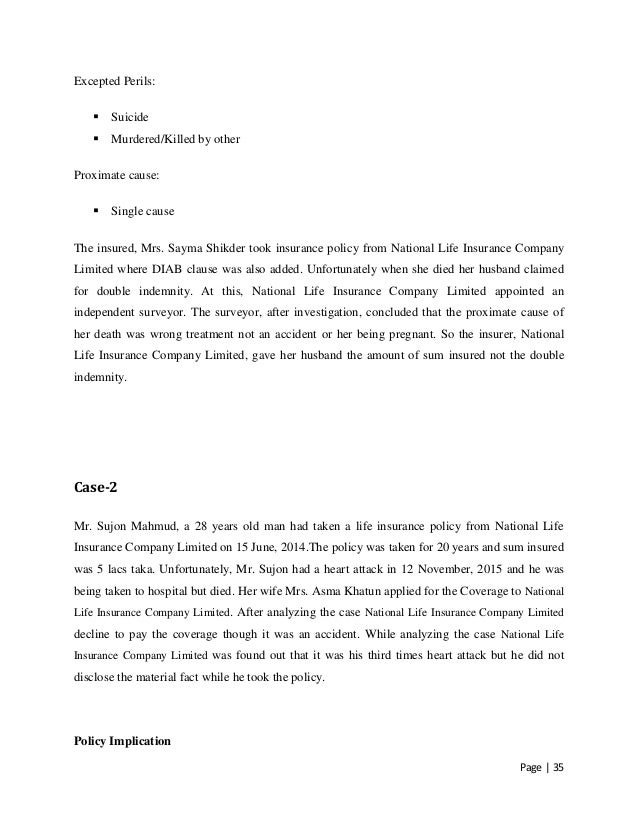 Source: slideshare.net
Source: slideshare.net
However, if your injury would. Beyond this contract, there are a number of accepted principles and practices that determine how the insurer should respond to the insured and vice versa. Proximate cause is a key principle of insurance and is concerned with how the loss or damage actually occurred and whether it is indeed as a result of an insured peril. The proximate cause itself may not do any direct damage. What is meant by proximate cause?
 Source: slideserve.com
Source: slideserve.com
A man ran to the platform of the departing train from the opposite side, and as the train was moving the man jumped. Proximate cause is a key principle of insurance and is concerned with how the loss or damage actually occurred and whether it is indeed as a result of an insured peril. A man ran to the platform of the departing train from the opposite side, and as the train was moving the man jumped. It looks for is the reason behind the loss; Thus, for example, there was a.
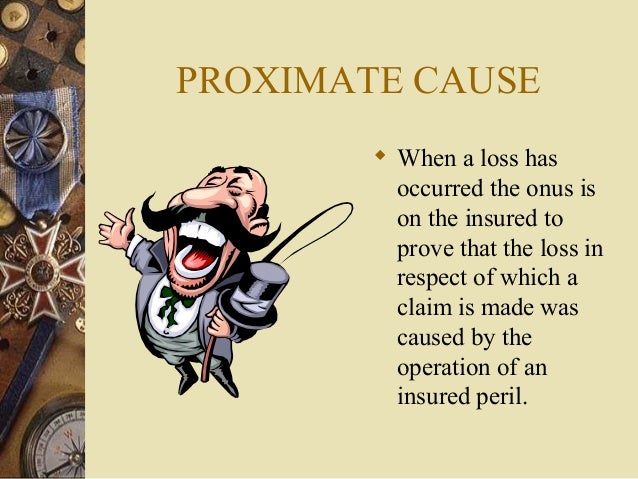 Source: socialgamenews.info
Source: socialgamenews.info
A man ran to the platform of the departing train from the opposite side, and as the train was moving the man jumped. That which causes a negative event, such as an injury. A man ran to the platform of the departing train from the opposite side, and as the train was moving the man jumped. The test for proximate cause determines if the injury was a. Apr 25, 2019 — according to the doctrine of proximate cause, which seeks to resolve coverage issues involving chain of causation scenarios, (1).
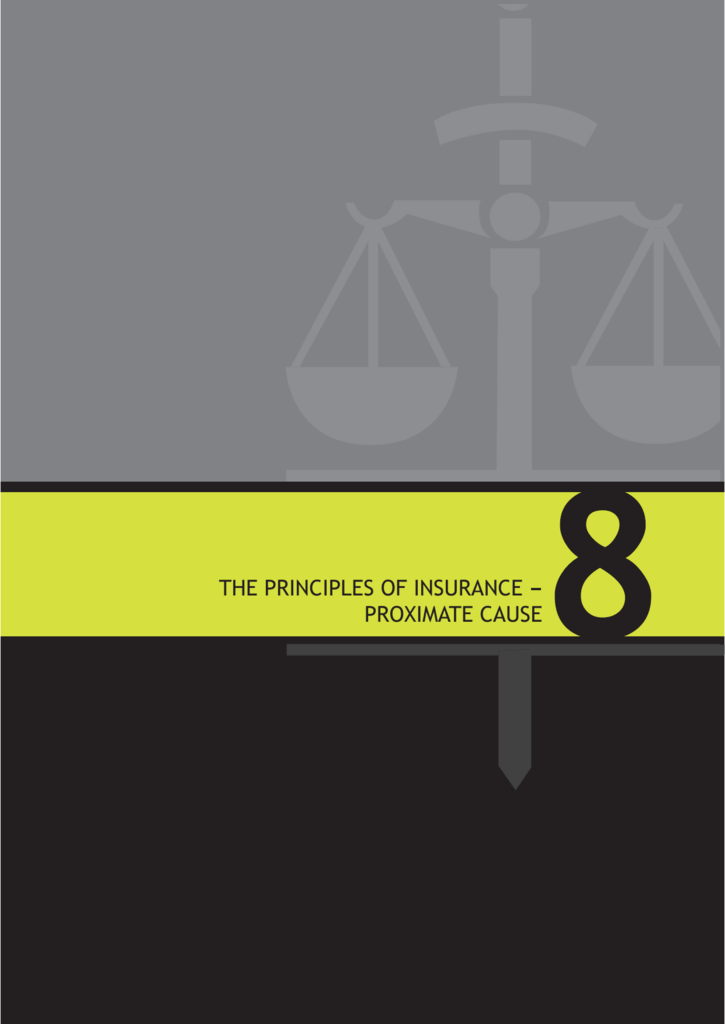 Source: studylib.net
Source: studylib.net
Proximate cause is a key principle of insurance and is concerned with how the loss or damage actually occurred and whether it is indeed as a result of an (5). A man ran to the platform of the departing train from the opposite side, and as the train was moving the man jumped. ‘proximate cause’ is defined as “the active, efficient cause that sets in motion a chain of events, which brings about a result, without the intervention of any new or independent force”. The actions of the person (or entity) who owes you a duty must be sufficiently related to your injuries such that the law considers the person to have caused your injuries in a legal sense. Proximate cause refers to the first event, or first peril, in a series of events that cause damage in an insurance claim.
 Source: slideshare.net
Source: slideshare.net
Proximate cause definition is an important legal concept that is applied, not only in personal injury, torts and negligence claims, but also breach of contract, insurance, labor law, and other civil claims. Therefore, it is a highly relevant principle in the insurance industry. Proximate cause is concerned with how the actual loss or damage happened to the insured party and whether it resulted from an insured peril. Proximate cause — (1) the cause having the most significant impact in. In order to prevail (win) in a lawsuit for damages due to negligence or some other wrong, it is essential to claim (plead) proximate cause in the complaint and to prove in trial that the negligent act of the defendant was the proximate cause (and not some other.
 Source: woolworthshomeandcontentsinsurance.blogspot.com
Source: woolworthshomeandcontentsinsurance.blogspot.com
Proximate cause was found in the 1927 case of palsgraf v. Therefore, it is a highly relevant principle in the (2). The definition of the “cause” was under test in many cases and was mentioned clearly in the marine insurance act 1906 in its section 55. Therefore, it is a highly relevant principle in the insurance industry. The insurance policy may cover the proximate cause, but not the event that actually causes the damage, so the policy holder will not be reimbursed for his claim.
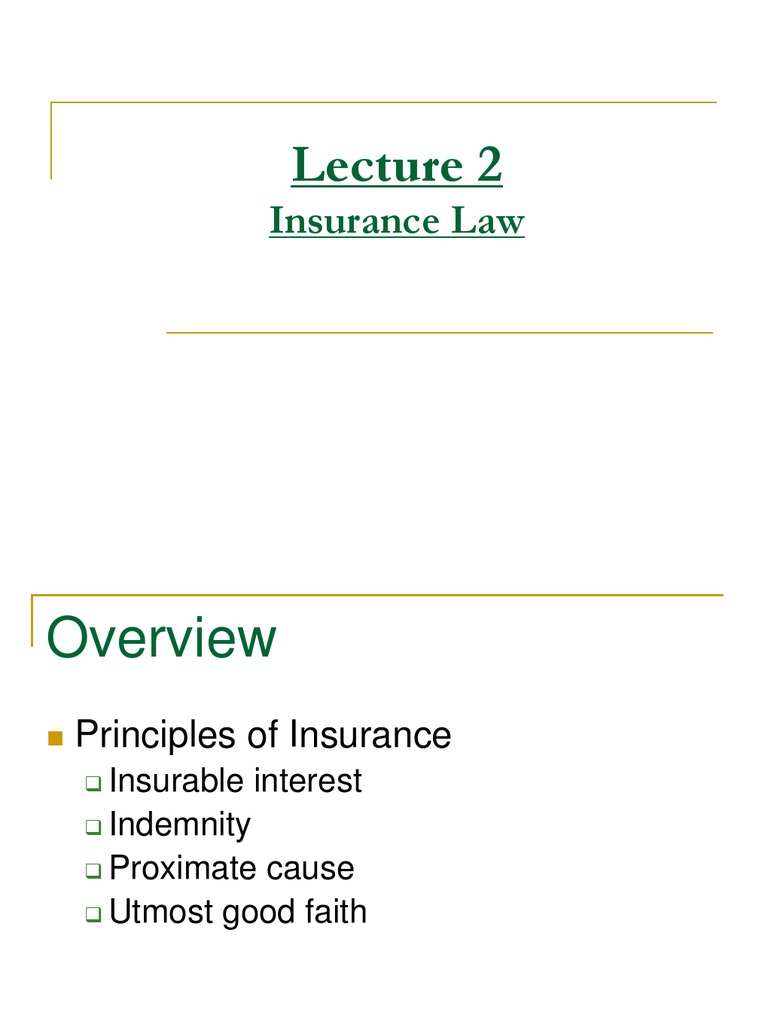
Basically, in any claim for damages, one must show that the action complained of was the proximate cause of the damages suffered. The actions of the person (or entity) who owes you a duty must be sufficiently related to your injuries such that the law considers the person to have caused your injuries in a legal sense. Proximate cause refers to the first event, or first peril, in a series of events that cause damage in an insurance claim. The insurance policy may cover the proximate cause, but not the event that actually causes the damage, so the policy holder will not be reimbursed for his claim. For an act or event to be considered a proximate cause, it does not necessarily have to directly precede a loss or begin a chain of occurrences leading to the same.
 Source: studocu.com
Source: studocu.com
The doctrine of proximate cause, which is common to all branches of insurance, must be applied with good sense so as to give effect to and not to defeat the intention. 8.1 proximate cause definition proximate cause was defined in the. The actions of the person (or entity) who owes you a duty must be sufficiently related to your injuries such that the law considers the person to have caused (4). This section provides a definition of proximate cause and explains how it should be determined in practice. Proximate cause — (1) the cause having the most significant impact in.
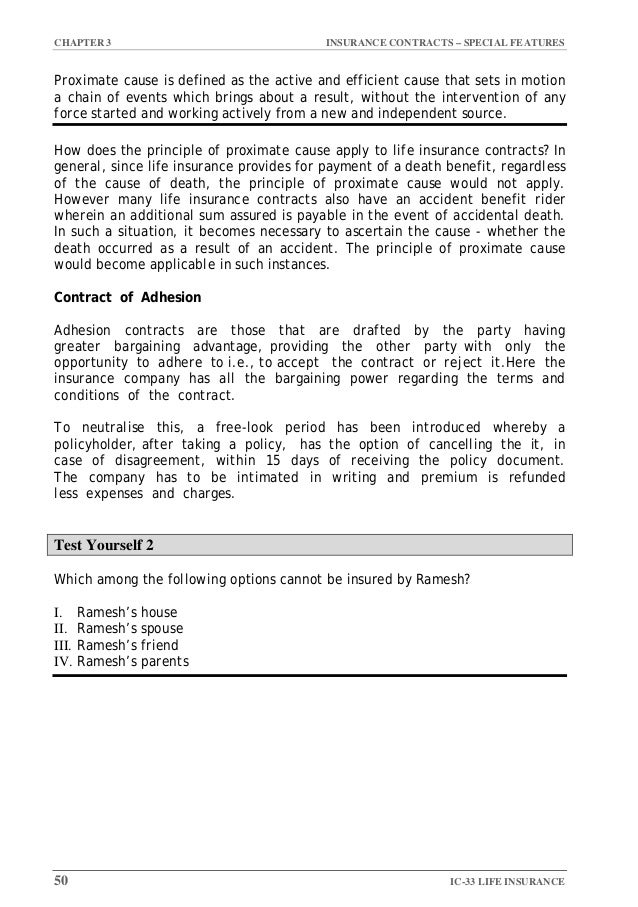 Source: slideshare.net
Source: slideshare.net
Proximate cause is a key principle of insurance and is concerned with how the loss or damage actually occurred and whether it is indeed as a result of an insured peril. Proximate cause definition is an important legal concept that is applied, not only in personal injury, torts and negligence claims, but also breach of contract, insurance, labor law, and other civil claims. Proximate cause refers to the first event, or first peril, in a series of events that cause damage in an insurance claim. The proximate cause is essentially that initial event that triggered the claim and need not be the event that immediately preceded the loss. Proximate cause is a key principle of insurance and is concerned with how the loss or damage actually occurred and whether it is indeed as a result of an insured peril.
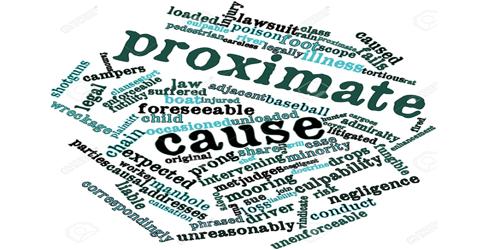 Source: qsstudy.com
Source: qsstudy.com
Apr 25, 2019 — according to the doctrine of proximate cause, which seeks to resolve coverage issues involving chain of causation scenarios, (1). Therefore, it is a highly relevant principle in the (2). The proximate cause is essentially that initial event that triggered the claim and need not be the event that immediately preceded the loss. Courts employ a set of proximate cause rules to resolve causation disputes when a property. This section provides a definition of proximate cause and explains how it should be determined in practice.
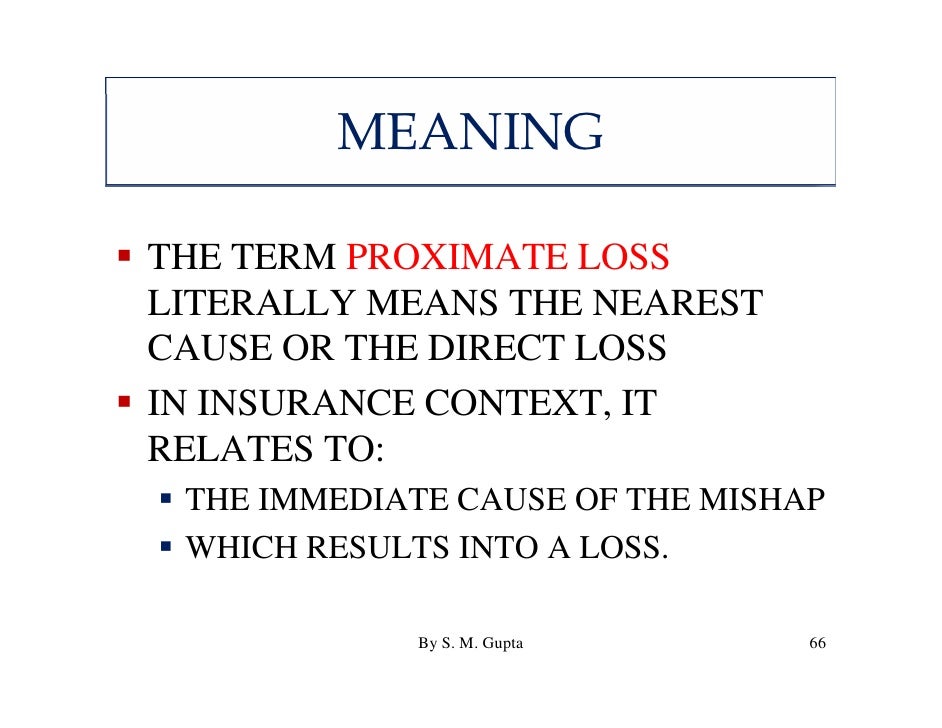 Source: slideshare.net
Source: slideshare.net
Proximate cause real life example. What is meant by proximate cause? Courts employ a set of proximate cause rules to resolve causation disputes when a property. In order to prevail (win) in a lawsuit for damages due to negligence or some other wrong, it is essential to claim (plead) proximate cause in the complaint and to prove in trial that the negligent act of the defendant was the proximate cause (and not some other. The definition of the “cause” was under test in many cases and was mentioned clearly in the marine insurance act 1906 in its section 55.
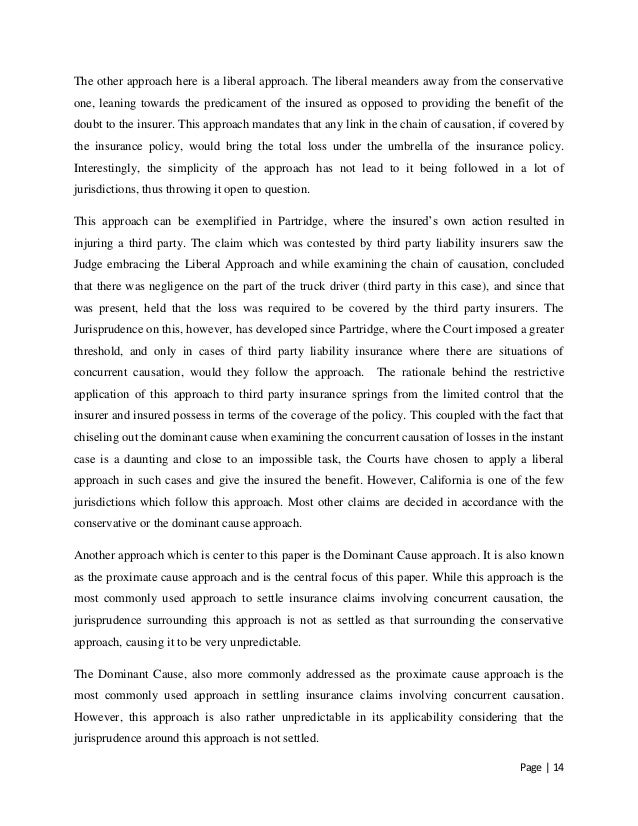 Source: slideshare.net
Source: slideshare.net
This section provides a definition of proximate cause and explains how it should be determined in practice. Proximate cause is a key principle of insurance and is concerned with how the loss or damage actually occurred and whether it is indeed as a result of an insured peril. In order to prevail (win) in a lawsuit for damages due to negligence or some other wrong, it is essential to claim (plead) proximate cause in the complaint and to prove in trial that the negligent act of the defendant was the proximate cause (and not some other. Thus, for example, there was a. Click to see full answer.
This site is an open community for users to do sharing their favorite wallpapers on the internet, all images or pictures in this website are for personal wallpaper use only, it is stricly prohibited to use this wallpaper for commercial purposes, if you are the author and find this image is shared without your permission, please kindly raise a DMCA report to Us.
If you find this site serviceableness, please support us by sharing this posts to your favorite social media accounts like Facebook, Instagram and so on or you can also save this blog page with the title proximate cause insurance definition by using Ctrl + D for devices a laptop with a Windows operating system or Command + D for laptops with an Apple operating system. If you use a smartphone, you can also use the drawer menu of the browser you are using. Whether it’s a Windows, Mac, iOS or Android operating system, you will still be able to bookmark this website.

Category
Related By Category
- Vicarious liability insurance definition Idea
- Staples insurance information
- Youi car insurance claim Idea
- T mobile insurance for iphone x information
- Shelter insurance fayetteville ar information
- Roger smith insurance Idea
- Scotia insurance eastern caribbean limited Idea
- Toronto condo insurance average rates information
- Sell life insurance policy calculator Idea
- Velox insurance hiram information